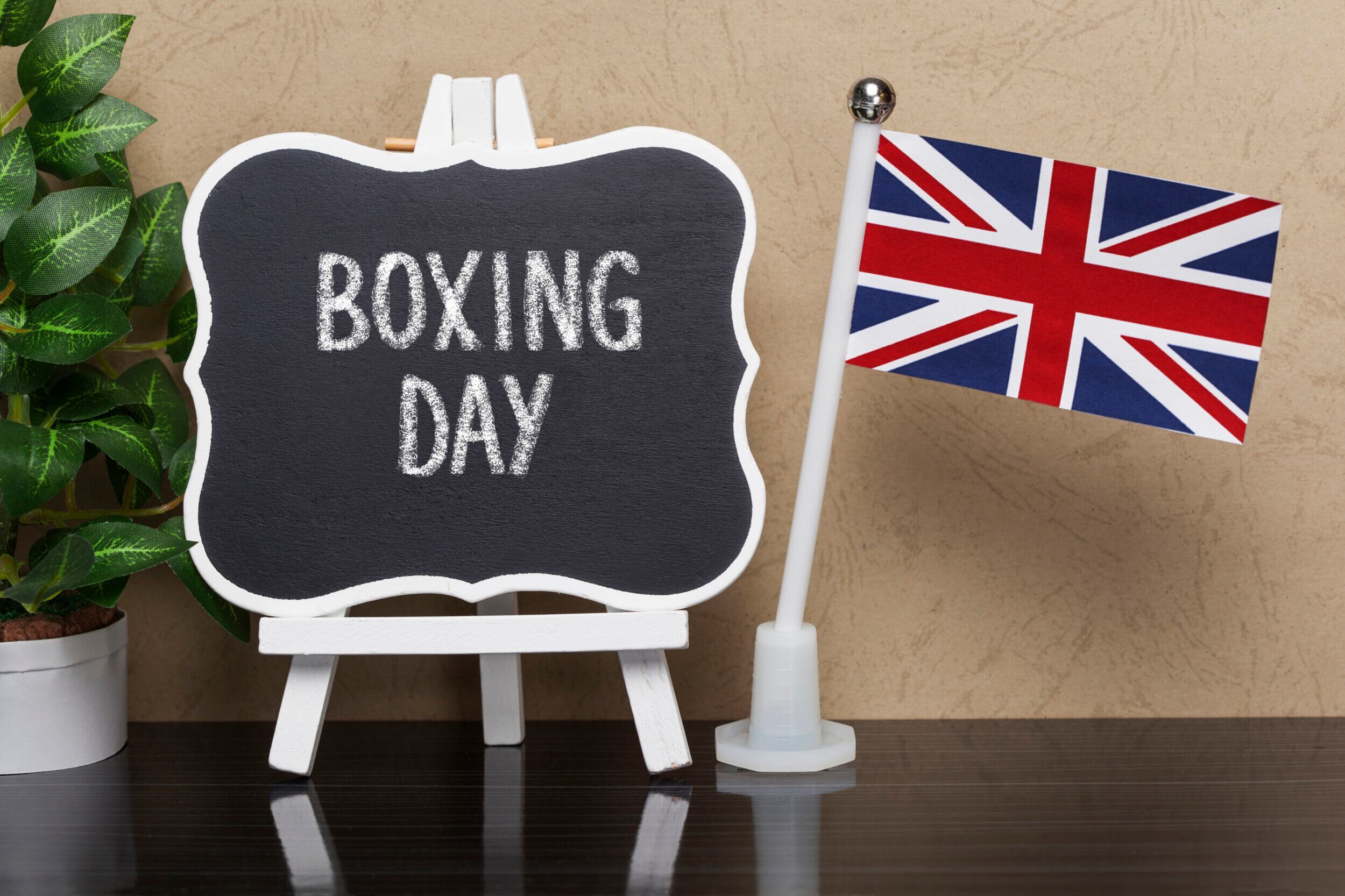I had never been curious enough to research "Boxing Day,” so all I knew about it was that it was the day after Christmas, December 26.
To me, Boxing Day is a funny-sounding name for a holiday or observance of some sort. I had always assumed, incorrectly, that there were boxing matches, fighting competitions. I was totally wrong about that.
So, my strenuous research for this article uncovered the real story:
Boxing Day started as a day when gifts are given to those who have served you during the year and were not compensated, or not paid much. You feel as though you sort of owe them. Or you feel they deserve an end-of-the-year gift.
The question that immediately popped into my practical mind was, “Well, why don’t you just give them a Christmas present on Christmas Day?”
The term “boxing” refers to filling a container for gathering gifts. A box. You box up the gifts. Thus, “boxing day.”
The Brits have a very British way of saying when Boxing Day is without saying “December 26.” They say “the second day of Christmastide.” Nice ring to it.
Boxing Day originated as a holiday to box up gifts to needy people. Nowadays, Boxing Day is to Christmas like “Black Friday” is to Thanksgiving, a day of Boxing Day sales. You box up the items that need to be returned.
Boxing Day originated in England and is celebrated in several Commonwealth nations, the closest being Canada. In most countries, it is a national and bank holiday. If December 26 falls on a weekend, the observed holiday may take place on December 27 or 28, sort of like the many holidays in the U.S. that are observed on the closest Monday.
In many parts of Europe, December 26 is not called Boxing Day but is a more Christian-based festival, Saint Stephens Day. These regions include parts of Spain, the Czech Republic, Germany, Austria, Romania, Hungary, the Netherlands, Italy, Poland, Slovakia, Croatia, Denmark, Finland, Sweden, Belgium, Norway and most of Ireland, excluding Ulster. St. Stephens Day is considered the second day of Christmas.
The unusual name of Boxing Day may have started with a Middle Age term, “alms box.” It was placed in the hallway leading into a church sanctuary to collect donated items for the poor. Many churches in Alabama still have an alms box in the hallway, though it is not usually called that. In years past, the box would be opened on December 26 and given to the deserving poor as part of St. Stephens Day.
A Christmas Box. You still hear this term occasionally.
In Alabama, we are more likely to hear the term, “Christmas basket.” In many former textile mill towns, a tradition was to give every family of mill employees a basket between Thanksgiving and Christmas that contained fruit, nuts, candy canes, and other items that seemed Christmassy. The distribution of the Christmas baskets did not wait until December 26 but was done much earlier so the families could have the items for Christmas.
Many churches gather items for Christmas baskets and distribute them to lists of needy families their members have compiled over the year. This is not done on December 26 but much earlier.
In Alabama, we do not observe Boxing Day, but we do put together Christmas baskets and pass them out between Thanksgiving and Christmas. The tradition goes back to the wise men from the East who brought gifts to the Baby Jesus.
Instead of “Boxing Day,” we have Basket Month. That term would have no ring to it. No one calls it that. Before next Christmas season, I will come up with a name for our annual tradition of distributing baskets to the needy. A good tradition. We need to be mindful of the needs of the “least of us” all year.
Jim Zeigler is a former Alabama Public Service Commissioner and State Auditor. You can reach him for comments at ZeiglerElderCare@yahoo.com.
Don't miss out! Subscribe to our newsletter and get our top stories every weekday morning.









